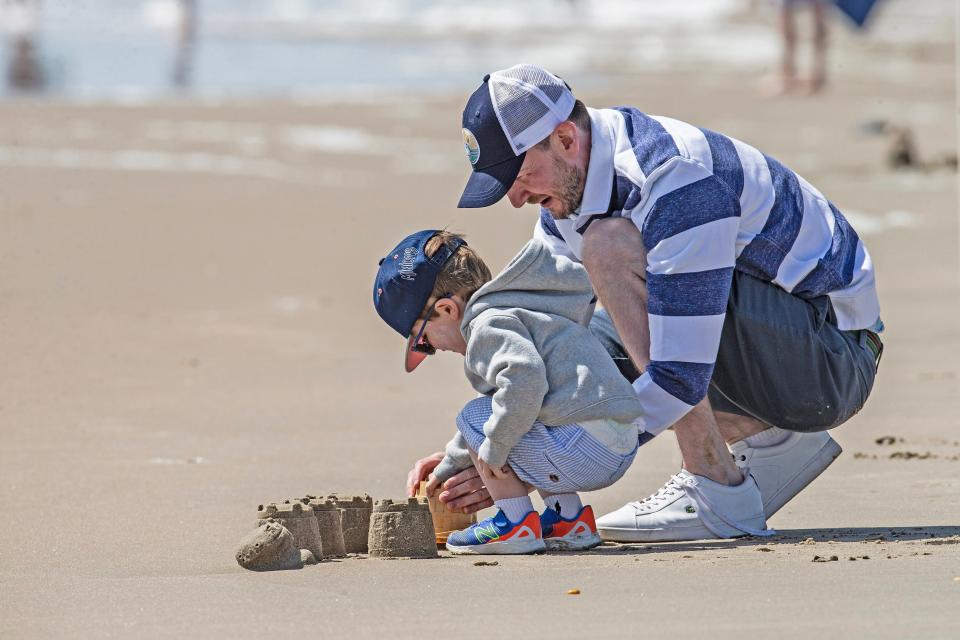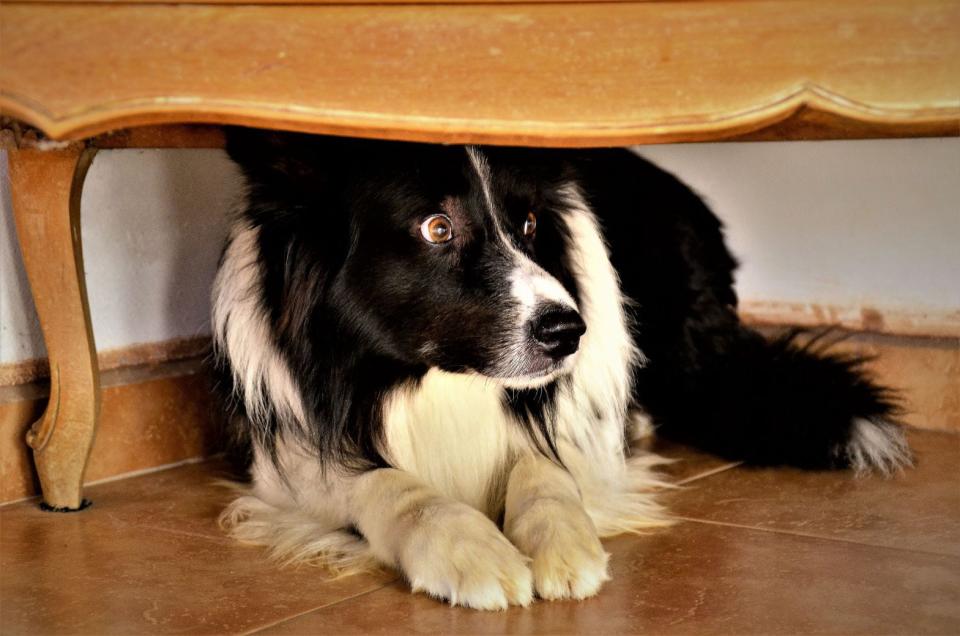Heat wave guide: Delaware weekend temperatures, how to keep yourself and pets safe
Higher temperatures remain in Delaware as heat wave advisories extend into the weekend.
On Thursday, the National Weather Service (NWS) issued an excessive heat warning for New Castle County, in effect from 6 a.m. Thursday to 10 p.m. Friday, and a heat advisory for the entire state, in effect from 11 a.m. Thursday to 6 a.m. Friday.
With Thursday’s heat still lingering, NWS continues to caution dangerously high temperatures and unfavorable outdoor conditions in the region.

An excessive heat warning remains in effect until 10 p.m. Friday night, along with a second heat advisory lasting from 10 p.m. Friday night to 8 p.m. Saturday night.
In New Castle County, a heat index value up to 110, classified as dangerously hot, is expected. For Kent and Sussex counties, which are only under a heat advisory, heat index values up to 105 are expected.
“Extreme heat and humidity will significantly increase the potential for heat-related illnesses, especially for those working or participating in outdoor activities,” the weather service reported.
How to stay safe during a heat wave

The main way to stay safe during a heat wave is to stay out of the sun. You should drink plenty of fluids, stay in an air-conditioned room if possible, and spend some time checking up on relatives and neighbors, according to the weather service.
While young children and pets should never be left unattended in vehicles, this is especially true during days of excessive heat when “car interiors can reach lethal temperatures in a matter of minutes,” said the weather service.
Other ways to practice safety during a heat wave include:
Limiting strenuous activities to early morning or evening.
Knowing the signs and symptoms of heat exhaustion and heat stroke, which include excessive thirst, fatigue, headaches, sweating, dizziness, trouble breathing, rapid heartbeat, nausea, vomiting and feeling clammy. If this happens, move the person to a cool, shaded location and call 911.
Wearing lightweight and loose-fitting clothing.
Taking frequent rest breaks in shaded or air-conditioned environments if working outdoors.
Don't have access to air-conditioning? In New Castle County, spokesman Brian Cunningham directs citizens in need of cooling to any of the county's 12 public libraries.
Wilmington residents can find relief from the heat at the William “Hicks” Anderson Community Center at 501 North Madison Street on Friday between 2 p.m. and 8 p.m. Air conditioning and water will be available.
All five of the city’s swimming pools and seven spray parks will open as scheduled. For more information about hours and usage, visit www.wilmingtonde.gov/citypools or call the Department of Parks and Recreation at (302) 576-3810.
In Kent County, cooling stations include the Kent County Public Library in Dover, the Smyrna Public Library and the Harrington Public Library.
In Sussex County, cooling stations include the County Administrative Offices building on The Circle in Georgetown, South Coastal Public Library in Bethany Beach, Greenwood Public Library and Milton Public Library.
Pet safety: Avoid these risks to dogs this summer as warm weather, pet dangers, amp up
How to keep your pets safe during a heat wave

Heat waves can cause problems for everyone in your household, including four-legged friends.
Pets can dehydrate quickly so it is important to keep a steady supply of fresh, clean water available, according to the ASPCA.
Similar to humans, pets should avoid being outside during hours of peak heat. Walk your dog in the morning and evening, and do not let them linger on the hot asphalt if the temperature is still high. This can result in paw pad burns.

According to the Humane Society of the United States, animals are more at risk of heat stroke if they are very old or very young, overweight, not conditioned to prolonged exercise or have heart or respiratory disease. Some dog and cat breeds with short muzzles will have a much harder time breathing in extreme heat.
Your pet is in danger of a heat-related illness if the following symptoms occur:
Excessive panting or difficulty breathing
Increased heart and respiratory rate
Drooling
Mild weakness
Unresponsiveness
Collapse
Glazed eyes
Excessive thirst
Seizure
Lack of coordination
Profuse salivation
Vomiting
Fever
Dizziness
A deep red or purple tongue
To treat a pet suffering from heatstroke, the Humane Society recommends moving your pet into the shade or an air-conditioned area and applying ice packs or cold towels to their head, neck and chest.
You can also run cool (not cold) water over them and let them lick ice cubes or drink small amounts of cool water.
Pets should be taken directly to a veterinarian for further health checks and to ensure pets are OK.
New Castle County cooling centers: Cooling centers? Pools? How you can escape the heat around Wilmington as temps climb
How to save energy in your home during a heat wave
On hot, humid days, periods of intense electrical usage are common, and it is important to conserve energy as much as possible to avoid brownouts and other electrical disruptions, according to the Department of Energy.
Ways to lower energy usage during a heat wave include:
Closing doors to keep cool air in and hot air out when the air conditioner is on
Keeping shades, curtains and blinds closed. About 40 percent of unwanted heat comes through windows.
Setting your air conditioner to 78 degrees or “low.” Remember to keep your air conditioner filters clean!
Turning off air conditioners, lights and other appliances when you are not at home. Using timers or smart technology to turn on your air conditioner about 30 minutes before arriving home can help cool the place down before you walk in the door.
Running appliances like ovens, washing machines, dryers and dishwashers in the early morning or late at night when it is cooler outside. This will reduce moisture and heat in your home.
Telling your utility provider if you or someone you know depends on medical equipment that requires electricity.
Reporter Shannon Marvel McNaught contributed to this report.
Got a tip or a story idea? Contact Krys'tal Griffin at kgriffin@delawareonline.com.
Ways to stay cool in Delaware: As temperatures soar, keep your cool with these 10 indoor activities in Delaware
This article originally appeared on Delaware News Journal: Delaware is experiencing a heat wave, how to stay safe

